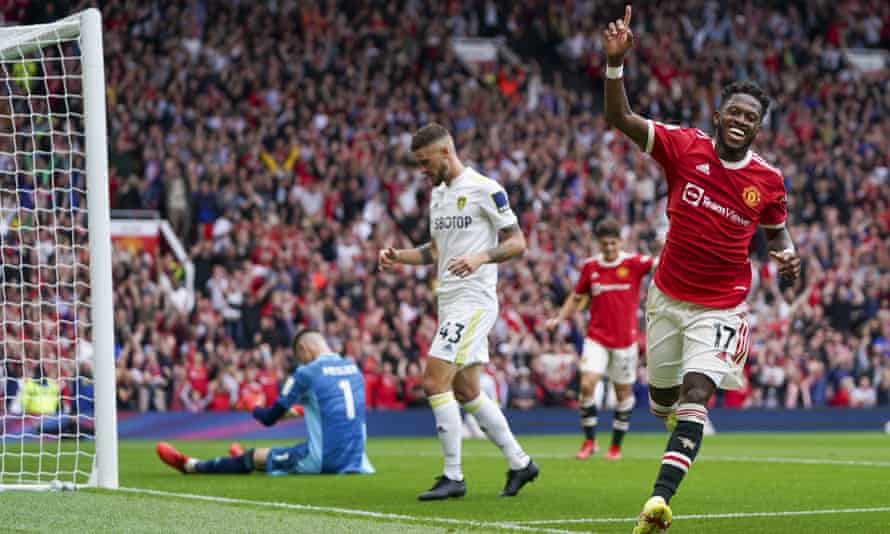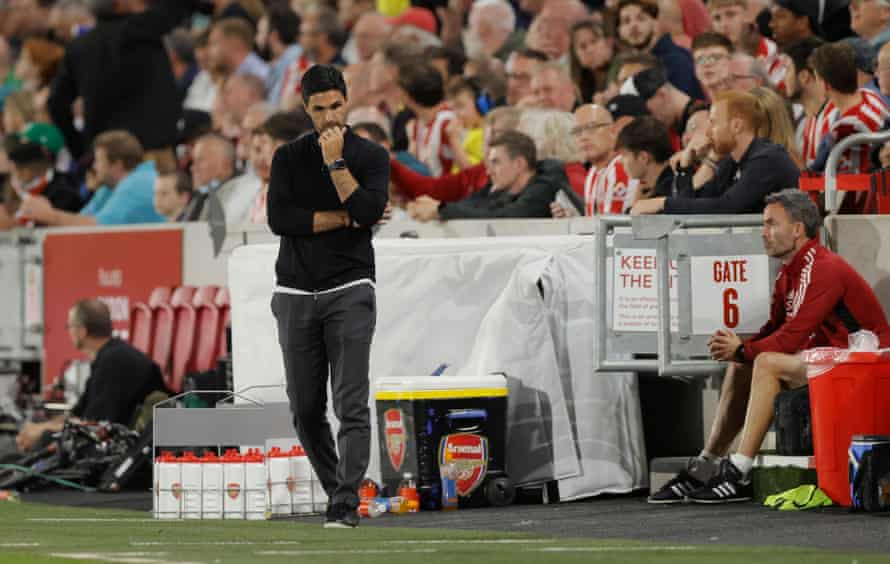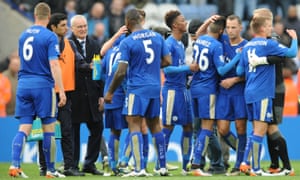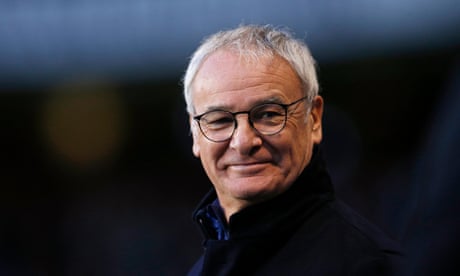In a world of performance data, human judgment is more vital than ever, says former England cricket selector Ed Smith in the FT
The fast bowler Jofra Archer, a brilliant talent new to cricket’s world stage, stands at the top of his run-up, flicking a white cricket ball nonchalantly in his hand. With 30,000 fans in the ground already drunk on drama, and 1.6bn watching around the world, Archer knows what’s coming. The next five minutes, his next six balls — a “Super Over”, the final way to determine a tied cricket match — will decide whether England or New Zealand win the 2019 World Cup.
“It’s so on a young man,” the TV commentator sighs about the decision to give the 24-year-old Archer the final act. “It’s a big call.” About a hundred yards to Archer’s right, I am watching on with my fellow England selector, as helpless as everyone else in the ground.
Just before the tournament, right at the eleventh hour, the decision had been made to add Archer to England’s World Cup squad. There had been plenty of public debate about the decision — England, already the top-ranked team without Archer, had been preparing for the World Cup for four years, and a popular player had been dropped to make way for him. Why take the risk?
Because Archer was exceptional. And we knew with an unusual degree of confidence that he was exceptional. Archer’s early career was unique because he’d played so much cricket in the Indian Premier League (IPL), where every match is televised. And every action in televised cricket leaves a clear data footprint — the precise speed, trajectory, bounce and revolutions of every ball bowled. This is exactly the kind of information decision-makers love to have — an X-ray of the match. And the data from the IPL was unequivocal: Archer not only merited a place in England’s 15-man squad, but also in the best XI. In fact, the data implied he’d be England’s best fast bowler. And he was, taking 20 wickets (an England record) in the tournament.
But the data only gets you so far. The moments before the Super Over proved that, too. England’s captain, Eoin Morgan, stood alongside Archer — chatting lightly, relaxed, open, a hint of mischief — a moment to enjoy. It was a masterclass in defusing pressure. So what might have been a “big call” turned into an obvious decision — thanks in part to the way Morgan handled things. Archer got his decisions spot on, and England won the World Cup.
Selection and decision-making are often framed in terms of “art versus science”, with the assumption that, in our digital age, “science” is increasingly marginalising the human factor. But making decisions — and this applies in any area, not just sport — demands weighing and reconciling different kinds of information, and drawing on differing types of intelligence. In the age of data, the question remains: where does the human dimension fit in?
---
The role of England’s chief cricket selector — which I held from 2018 to 2021 — stretches back to 1899. It was once seen as sport’s ultimate establishment position. A sober, grey worsted suit was woven into the job — folded Telegraph in one hand, black umbrella in the other. Cricket persisted with selectors — where football, for example, centralised power in the manager or head coach — partly because formal coaching arrived relatively late in cricket (England’s first head coach was appointed in 1986). Since then, cricket has mostly retained shared responsibility between selectors, coach and captain.
After all, who is on the field — and here sport is like all industries — has the greatest bearing on winning and losing. That’s why the richest and most advanced sports teams — in football and American sports — have invested heavily in data-informed recruitment, seeking an edge in identifying talent.
I was 40 when I became England selector; my co-selector, James Taylor, was 28. Our combined age was about the same as some individual England selectors from earlier decades. The impertinence of youth was compounded by the perception that our new selection system leant heavily on data and algorithms. Cricket is a conservative sport. Far from being reassuringly old-fashioned, the new selection panel was often dubbed “left field”. Innovation and tradition rubbed shoulders. That is, of course, a tricky balancing act, with risks on all sides, and while I did not know it at the time, that was probably the attraction.
Was England cricket now trying to “Moneyball” its selection strategy? Many people thought so. But the analogy is problematic. Moneyball, Michael Lewis’s classic book about the Oakland A’s baseball team, is only partly about data, and significantly about price. One way that Oakland punched above their weight was by buying undervalued players and selling over-valued ones. But for a national sports team, of course, there is no transfer market. You can’t pit your wits against other teams by trading players with, say, the old rival, Australia. England cricket has its talent pool, and that’s that.
But selectors can — and this is close to the heart of the matter in all professions — diverge from conventional wisdom about where they perceive value. And here, of course, better data is extremely helpful. If you can measure player impact more accurately, then you are getting nearer to identifying “talent that whispers”, not just “talent that shouts” (in the excellent phrasing of Rasmus Ankersen, who was co-director of football at Brentford before moving to Southampton).
This is not to suggest that data holds all the answers (the theme of many recent sports books) and that human judgment is on the road to oblivion. Yes, sport is in the midst of a data revolution, and you’d be insane not to seek better information to inform decisions. But rather than using data instead of human intelligence, the challenge is using data in tandem with the human dimension.
And here decisions in sport reflect decisions in life. “What the data says” is too often a convenient way of passing the buck. Better to come out in plain sight: it’s a judgment.
Risk is the job
“Creative solutions, please — but nothing that’s too clever by half!” This is a recurrent framing of what people ask for from decision-makers. Wanted: upside outcomes without downside risk. That is impossible. As soon as decisions diverge from consensus, they inevitably come with the threat of a downside. The American investor and thinker Howard Marks has written a superb series of memos on this theme, “Dare to be Great”.
“By definition, non-consensus ideas that are popular . . . are an oxymoron,” Marks writes. “And in the course of trying to be different and better, they [investors] have to bear the risk of being different and worse.”
This is the challenge facing strategists in sport. Whenever your decisions diverge from conventional wisdom, you clearly discern value that most people don’t see. So a degree of intellectual loneliness is a necessity.
One of the most unconventional decisions England cricket made during my time was selecting three spinners and three all-rounders for the 2018 Test series against Sri Lanka. We won the series 3-0. For the next Test match, we also picked an unconventional mix of players in the West Indies and got smashed. “Too clever by half!”
Perhaps we became more risk-averse after that moment — which I think was a mistake. Because if you stop diverging from consensus, then what are you doing? Someone who makes decisions which merely reflect the average of opinion is not adding any value.
David Swensen, who headed the Yale endowment fund, said superior decision-making demanded “uninstitutional behaviour from institutions”. The same challenge exists inside sport. Every leading sports organisation is now a huge machine, and that brings its own dangers — diluting a sense of mission, the temptation to keep everyone happy, watering down good ideas and the rush to compromise.
How can the bureaucracy fight against the risk-averse tendencies of bureaucracies? Even when you’re on the inside, can you retain an outsider’s sense of independence and boldness, before all the compromise gets priced in? That’s central to the task — and inevitably comes with tension.
‘Accepting a negative metric’
“Whenever someone innovates in business or in life,” argues the former poker player Caspar Berry, “they almost inevitably do so by accepting a negative metric that other people are unwilling to accept.”
When the NBA’s Houston Rockets began taking a higher proportion of (long-range) three-point shots, they were accepting the negative metric that they would miss more often. The pay-off was that shots they did convert came with a built-in premium. The trend was initially ridiculed — before being folded into orthodoxy. In 2015-16, only six out of 30 NBA teams took three-pointers in at least a third of their attempts. By 2020-21, 28 teams were doing it.
Spain’s triumphant football team of 2008-12 sometimes lined up without a striker. Neglecting to select a specialist goalscorer brings risks — as pundits regularly reminded us by imploring Spain to pick a big strong lad up front to bang in the goals. In 2012, Spain preferred the extra midfielder — expanding creative opportunities, while tolerating the negative metric of not selecting a player focused exclusively on scoring. Spain won the final of the 2012 Euros 4-0, their third major title inside four years — revealing a shrewd trade-off.
In England’s T20 cricket team, we moved towards an ultra-aggressive batting order, with star batsman Jos Buttler moving from the middle order to opening batsman. But didn’t England need Buttler at the end, when the game was on the line? Ideally, yes. But not if it meant restricting Buttler’s ability to shape the contest by keeping him out of the action until it might be too late.
All these decisions were initially controversial, before they shifted the consensus and became part of a new orthodoxy. That journey is never smooth. So while innovation can draw on data-informed insights, it stands or falls on courage and resilience. There will always be bumps in the road; can you hold the line? Data might illuminate the solution. But it’s going to take personal conviction to get it done.
Look for ‘Lego’ players
The NBA player Shane Battier was dubbed “Lego” by his manager because when he was on the court “all the pieces start to fit together”. Battier’s individual stats were moderate, but the team’s overall performance improved.
Ranked by the team’s win-loss ratio for games in which they played, the three “winningest” England players in the five-day Test matches when I was selector (in order) were Keaton Jennings, Sam Curran and Adil Rashid. All three players faced frequent media pressure about their individual place in the Test team; their contribution to overall success was often overlooked.
Team success, of course, doesn’t and shouldn’t guarantee an individual’s selection indefinitely, whatever their form and confidence. But collective output should always be part of the mix in assessing an individual. The “Lego” concept is a useful reminder that the ultimate goal is team success.
“Choose the best player for every position,” argued Johan Cruyff, “and you’ll end up not with a strong XI, but with XI strong I’s.” Teams that punch above their weight — such as the Premier League football club Brentford FC — consistently recruit players who are undervalued. That skill can be separated into two distinct parts — not only ranking players better (“how good is ‘X’ relative to ‘Y’?”), but also identifying the team’s needs and how to meet them. The way things fit together can be as important as the pieces themselves.
In assembling the overall puzzle, it helps to have a point of difference. In cricket, left-arm bowlers, for example, outperform their right-arm counter-parts (on average) because they benefit from being unusual. And even the right-arm bowlers in the team benefit, because opposition batsmen have to switch constantly between different angles of attack, increasing the likelihood of being caught off-balance.
You’re going to have to think, not just compute
On one level, there is nothing new to be said about the boundaries of rational decision-making. In 1936, the conservative philosopher Michael Oakeshott co-wrote a book about a systematic approach for betting on the Derby, A Guide to the Classics. (The title was a very Cambridge in-joke.) There is a limit, as Oakeshott wrote in another piece, “beyond which there are no precise rules for picking the winner, and . . . some intelligence (not supplied by the rules themselves) [is] necessary”. You’re going to have to think, not just compute.
Nearly a century later, even after the explosion of a lucrative sports analytics industry, that is loosely the position of Daryl Morey, former general manager of the Houston Rockets, whose innovations have transformed the NBA (and who called Shane Battier “Lego”). “You have to figure out what the model is good and bad at,” Morey argues, “and what humans are good and bad at.”
No system, in other words, is so good that it can survive without good judgment. You can’t box off a perfect process. Understanding the data can embolden better risk-taking, but it can’t absolve decision-makers from responsibility.
In the best decision-makers I’ve observed, I’ve sensed they could live with uncertainty and yet still make good (or above-average) decisions. Conversely, an opposite type finds it hard to cope unless they “know for sure”. And yet this second group never can know — so their thinking gets sucked into trying to reduce anxiety rather than searching for better solutions.
In most interesting aspects of life, there usually is no perfect or complete answer. And yet there is still better and worse. Wise people know this. But admitting it is in danger of falling victim to the craving for convenient certainty — including the expedient use of “what the data says”. Rationality should allow for healthy scepticism about how much can ever be completely known and understood.
When I started as selector, the optimist in me wanted to believe we could harness data towards “optimising” England selection. In retrospect, I see more clearly that it will always be a highly human challenge founded, above all, on the primacy of judgment. Just as well, too. Because human value lies where things are most unquantifiable and most uncertain.




 ‘
‘

